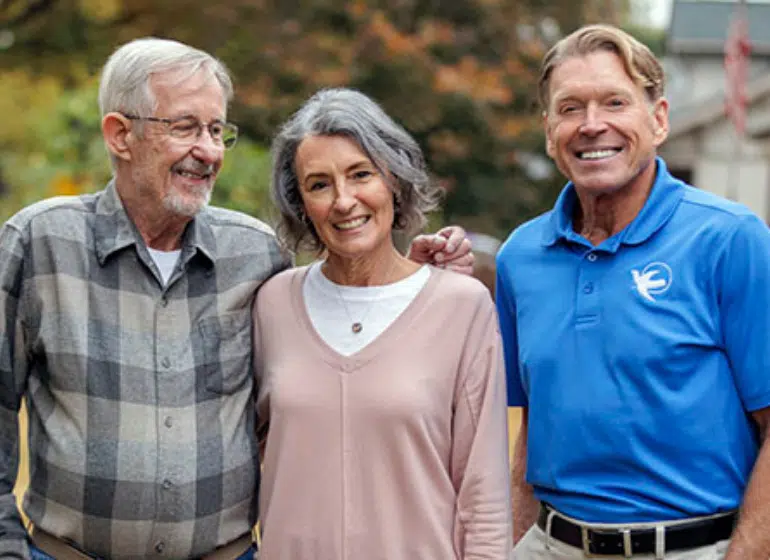Caring for an aging parent or loved one is often described as a labor of love. For family caregivers, this role can bring complex, sometimes conflicting emotions. Feeling grateful for time with an aging parent can coexist with the stress and energy commitment caregiving requires.
This emotional duality is not a sign of failure. In fact, it’s normal.
But leaving these emotions unchecked can result in caregiver —a state of emotional and physical exhaustion that complicates senior care, your health, and the relationship with your aging loved one.
Learning how to recognize mixed emotions and manage them in healthy ways will help reduce caregiver burnout and help you continue to provide compassionate care for your loved one.
Coping With Mixed Emotions
Balancing gratitude and resentment is not about eliminating one feeling. It’s about recognizing that both emotions are valid and learning to respond with compassion. In other words, permitting yourself to feel both ways, even simultaneously.
Here are a few strategies to help manage conflicting feelings:
- Talk it out: Whether it’s a trusted friend, support group, or counselor, verbalizing your emotions helps validate your experience and reduce feelings of isolation.
- Reframe your language: Shifting your self-talk can help you identify your needs and communicate them more effectively to others. Instead of saying, “This is driving me crazy,” try, “I need a short break tonight.
- Prioritize self-care: Carving out time to fill your own cup helps you reset emotionally. Exercising, reading, or resting—even for 15 minutes—can make a difference.
Recognize Caregiver
Caregiver burnout often builds gradually and can be easy to miss. Left unaddressed, caregiver burnout symptoms can impact your health and the quality of care you can give your loved one.
Acknowledging that you’re overwhelmed is not a weakness. It’s a first step toward preserving your own well-being. Watch for these signs of burnout in yourself and other family caregivers:
- Persistent fatigue or irritability
- Loss of interest in activities once enjoyed
- Difficulty concentrating
- Changes in appetite or sleep
- Feelings of hopelessness or being “stuck”
We truly appreciate the recognition the Charlotte community has given us. We work every day to offer the best home care available, and the recognition we’ve received from Charlotte’s community reminds us that our efforts are worth it.
